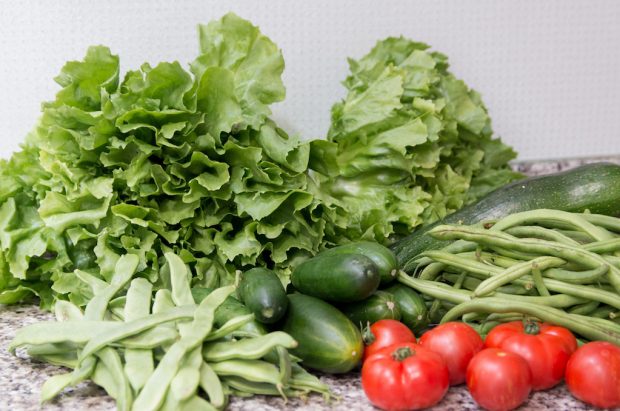Have you ever wondered how life would be if we didn’t have ‘sell by’ dates for food? And more so, whether our body would reap the benefits of not eating food with chemicals or preservatives in it?
I remember in the 60s and early 70s that when you went to a local shop you bought only the groceries you needed for the next few days. A few slices of cheese, a few tomatoes, a loaf of fresh bread, a couple of apples and a few eggs. These items didn’t have a sell by date and you knew to eat them within a few days. There wasn’t the enormous array of different brands or food types – quite a simple diet – and none of us went hungry or minded. I loved the fresh eggs when we had them, and having an apple when I got home from school.
Fast-forward to 2017 and we have a very different experience. I was looking in the supermarket at various foods and noticing the sell by dates – and that those foods with long sell by dates seemed to have more ingredients in them than those with shorter or more immediate sell by dates. I started looking up the aisles at things like jam. If we look at jam – the long sell by date jams are stacked full of sugar as well as the fruit, yet you can also buy some preserves e.g. strawberry preserve which has no added sugar – it only has apple juice concentrate in it, which once opened, needs refrigerating as it has a far shorter sell/eat by date.
Foods with long sell by dates have preservatives in them. There are a range of things we use to preserve food or elongate the sell by date e.g. vinegars, sugars, salt, other preservatives, and we use tins, jars, mountains of plastic packaging, and all manner of containers, all of which have to be disposed of while globally the necessity for recycling and rubbish disposal continues to rise. You only have to watch the news to see how far plastic travels and the dangers it poses to sea life, for example:
“An illustration of the sheer magnitude of the problem is that as much as 51 trillion micro-plastic particles – 500 times more than stars in our galaxy – pollute the seas.” (1)
How come we need so many foods with long sell by dates? How on earth did we manage all those decades ago without them? Hunter-gatherers aeons ago didn’t have sell by dates or have a problem with plastic. When did we start to make the simple act of purchasing food so complicated? I know we can manage very well without long sell by dates and the food we ate decades ago was less tainted with preservatives, sugars, salts, and there was no plastic packaging. And yet nowadays we seem to live in a way where we stock up, hoard, plan for the future and want our shopping to last for weeks, and when we are coming up to public holidays when the shops are open less, we stock up as though we won’t see another shop for months.
In an age where we have problems with:
- Obesity – worldwide this has more than doubled since 1980 (2)
- Diabetes – the number of people with diabetes has risen from 108 million in 1980 to 422 million in 2014 (3)
- Addiction to sugar (4)
- The overuse of salt in our diets (5)
wouldn’t it be a great time to consider how we could simplify food, with fewer sell by dates, fewer preservatives and packaging? Is it also possible that our body would find benefit in eating food that is simple, contains no preservatives, is in season and freshly prepared?
Letting go of sell by dates as they currently are is a public health initiative that is well worth considering. Whilst it may mean we shop slightly more often or we need to consider and plan our food with more care, it would completely change our relationship with food, with shopping, and at the same time support the environment. It would change food manufacturing, our use of salt, sugar, vinegars/preservatives, and the need for so much packaging. It would also impact on our health as we wouldn’t be ingesting so much sugar, salt and other preservatives or chemicals.
Equally significantly, it would also offer the opportunity for us to look at the recently emerged trend of stockpiling food and the panic buying that occurs at holiday times. Animals don’t stock pile food – they eat according to their own rhythm and according to a far greater universal rhythm and cycle where their body naturally knows what is needed.
What then if the answer to this stockpiling trend was simple and natural – just the same as it is with the Animal Kingdom?
What if we bought and prepared food and ate by listening to our own body, feeling what to eat, what to buy, how to buy it in accordance with the natural rhythm of our body?
I know when I choose to be aware, my body knows exactly what it needs when I go shopping, or when I’m about to prepare and cook a meal. And nowadays I shop, prepare and cook most of my meals for myself and the food I eat is mostly in season, fresh, and minimally packaged. More so, I know my body benefits from this – I love the seasonal fresh flavours, and the ease of cooking fresh food, and my body loves the simplicity of it. There is also less packaging to recycle after too!
Is it then possible that: Sell by dates are past their sell by date?
What if our body knows how to shop, when to shop, what to shop in a way that doesn’t need packaging or long sell by dates or chemicals, as the body can, if we choose, live in accordance with the rhythms and cycles of nature, the seasons, and can flourish very well without the need for long sell by dates? And in doing so not only are we more responsible for our own health and wellbeing, we are more responsible for the environment we share with everyone else, too?
By Jane, London
References:
- UN News (2017) ‘Turn the tide on plastic’ urges UN, as microplastics in the seas now outnumber stars in our galaxy. UN News Centre 23rd February http://www.un.org/apps/news/story.asp?NewsID=56229#.WLAznhCFBfQ
- WHO (2016) Obesity and Overweight Fact Sheet – http://www.who.int/mediacentre/factsheets/fs311/en/
- WHO (2016) Diabetes Fact Sheet – http://www.who.int/mediacentre/factsheets/fs312/en/
- uk (2016) Sugar reduction and obesity: 10 things you need toknow – Public Health Matters https://publichealthmatters.blog.gov.uk/2016/11/01/sugar-reduction-and-obesity-10-things-you-need-to-know/
- WHO (2016) Salt Reduction http://www.who.int/mediacentre/factsheets/fs393/en/
Further Reading:
‘A spoon full of sugar helps the medicine go down’ – irony or just pure corruption?
The environment
Takeaways
Educated food choices – become your own physician!





